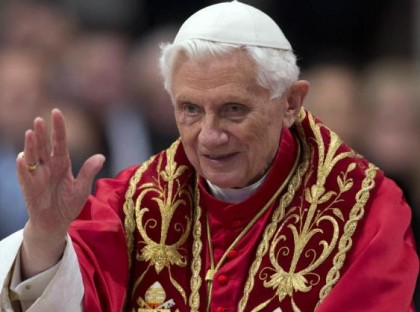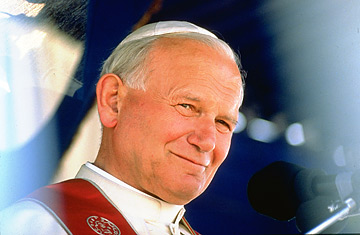The Glorious Conformity of the Children of God?
Devra Torres | Feb 22, 2013
Mama, if God knew Adam and Eve were gonna sin, how come he tested them?

"Jopa" (Johanna Paulina, named after Guess Who) is my seventh child, age seven, heading into the age of reason right on schedule. This was hardly the first time a kid had posed this question to me. I dusted off my usual talking points:
- “Well, it wasn’t that kind of a test—like the one your teacher gives you to find out something she didn’t know before, since God knows everything…”

“Yeah, but—“
- “…He wanted to give us a chance to obey Him freely, out of love…”
“Yeah, but—“
- “…because He wanted us to be free persons, not just little robots who automatically did whatever He wanted. If we weren’t free, we wouldn’t be able to love anybody…”

“Yeah, but—“
She wasn’t buying it. She figured that God, being God, could have found some way around the problem. I did clarify that this conversation was not an exhaustive treatment of the mystery of evil. We’ll keep working on theodicy as we both get older and (I hope) wiser.
Our recent conversations here (and here and here) at the Personalist Project, though, have shown me that God’s antipathy for robots goes deeper than I had realized.
Free personhood is so important to Him that He chose it for us, even knowing all the malicious, stupid and harmful uses we would put it to. We’re free to choose for or against evil, but we’re also surprisingly free to choose among goods. We’re free to choose among vocations. We’re free to choose to cooperate, or not, in the procreation of particular beings who will then live forever in heaven or hell. Some of us are even free to choose to abdicate or to remain Pope.

When God made us selves, He wasn’t kidding around.
We’ve devised lots of ways to try to wriggle out from under “the weight of glory” (C.S. Lewis)--to reduce our life projects to mere imitation, conformity, and abdication. Some of these excuses seem to come straight out of Scripture and authentic doctrine. Doesn’t St. Paul say to imitate him, even as he imitates Christ? Shouldn’t we conform ourselves to God’s will? Didn’t even Jesus “empty Himself”? Isn’t the whole point of life to get to where you’re willing to surrender and abandon yourself to Divine Providence—to love what God loves and will what He wills?
You could get the impression that the whole reason God gave us freedom is so that we would give it back to Him—and in a sense, that’s perfectly true, too.
But we’re not supposed to give it back unused, undeveloped, like the servant who buried his talent in the ground.

Imitation, conformity, surrender, and self-emptying need to be understood rightly. Misunderstanding leads believers to think God demands that we leave behind our personality, creativity, and legitimate autonomy and endure a stunted existence.
And it repells non-believers unnecessarily. They’ll think, like Nietzsche, that we’re pushing “slave morality” or just a boring, conformist, even cultish way of life in which the pinnacle of spiritual development is to get really good at “doing what you’re told.”

So what is the right way to go about it? Precisely because each person is himself, it’s hard to articulate. It’s a balance of imitation (not slavish mimicry) and creativity (not reflexive rebelliousness or impulsiveness). It embraces unconditional abandonment (“Not my will but Thine be done”) but also the Virgin's confident (and effective) insistence at the wedding feast of Cana, and the Canaanite woman's refusal to take no for an answer, even after Jesus compared helping her to throwing the children's food to the dogs.

Sometimes, too, what we mistake for our personality, creativity, and autonomy are really just laziness or lack of discipline. Getting detached from these lets our real personality flourish, so that we can get out of our own way and “become who we are.”

As C. S. Lewis' senior devil puts it in Screwtape,
When He talks of their losing their selves, He means only abandoning the clamour of self-will; once they have done that, He really gives them back all their personality, and boasts (I am afraid, sincerely) that when they are wholly His they will be more themselves than ever.”
Well, that's all the time I can spare. I'm off to prepare myself for the next ten years of theodicy lessons with Jopa.
